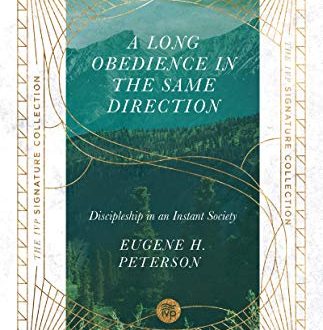Reviewer: Dr Daniel Pampuch, CEO of Christian Schools Australia, Chair of Council – Newlife
I have long been a supporter of the concept of bivocation. Bivocation is a calling to do more than one form of service or mission at a time. Martin Luther firmly believed that all things are sacred and that how we engage with work, the environment, people, and recreation can be a form of worship and service to God.
Accordingly, Andrew Hamilton’s book was of high interest to me. As a Baptist pastor in Western Australia, he has walked a journey of balancing his formal church work with running his own irrigation business, being a husband and father, as well as a keen surfer.
Andrew challenges the contemporary notion that ministers should be fully employed by the church. He speaks to the fact that early church leaders, with particular reference to the apostle Paul and Jesus, had enterprises and work that was able to support their ministry. Paul claimed that he did not want the fact that he was drawing on church funds to be a stumbling block to non-believers coming to the gospel (1 Cor. 9; Acts 20). Furthermore, Andrew claims that in contemporary society, the church is becoming increasingly detached and irrelevant to most people and that an inroad into the broader society can be achieved by ministers engaging in business or non-church work. For the congregation, not having ministers on tap challenges them to see themselves afresh as the royal priesthood with gifts to offer the church and to not simply be consumers on a Sunday seeking to be entertained.
Andrew pulls no punches in terms of challenging ministers to leave the comfort of their churches and their coffee culture and to enter into the real, messy world. For him, churches are often just preparing people to support the internal workings of the church. Andrew states, “Christian service is viewed as helping the church community perform its internal operations, so it may extend to greeting, car park attending or playing music in church, but few are grappling with how their faith is expressed beyond the gathering in the workplace” (p.59). Furthermore, becoming a minister should not be seen by congregants as having arrived in the Christian faith. He warns about Christian ministry being viewed as some, “form of mystical experience reserved for the privileged or the special” (p.117).
The central challenge of the book is that ministers can model a form of “sentness”. That as a follower of Christ where you are sent is an expression of “work as worship” (p.73). The job of the minister therefore is not to persuade people to come to church, “or to get them close to a pastor so he/she can ‘work their magic’. It is simply to recognise our own ‘sentness’, to understand who we are sent to and how we can live and speak the good news of Jesus to them” (p.73). By their own modelling, ministers can return people to a proper understanding of vocation, less related to employment and more centred in identity. Quoting Parker Palmer, “Vocation does not come from a voice ‘out there’ calling me to become something I am not. It comes from a voice ‘in here’ calling me to the person I was born to be, to fulfil the original selfhood given me at birth by God” (107).
What especially spoke to me, as a layperson, was Andrew’s recognition that the congregation before him each Sunday are employed. Many congregants work long hours, some in very physically intensive or challenging spheres. By working himself, he had a fresh understanding of the world of the people he was seeking to speak to. Furthermore, by asking anything of the congregation, he realized that his requests came on top of their work week, home responsibilities, etc. and would be fulfilled after hours, on their days off, or during their holidays.
In the last section of the book, Andrew speaks to how a minister may become bivocational. He addresses the reasons often put up against adopting this approach and the most common hurdles and stumbling blocks likely to be encountered. There is much here a minister could glean as to how to make a successful go of being bivocational.
In conclusion, Andrew does well to paint a fresh picture of how God’s mission can take place in our homes, places of employment, and communities. It is by coming alongside people in genuine relationships and by listening and serving them well. It is by providing gentle guidance and a safe place for them to encounter God. In doing so, everything we do has meaning and purpose.
I would highly recommend this book to all ministers and church workers, not to move them into part-time employment in the world, but to provide them with a fresh vantage point to look at the shaping of their role, the posture of their church, and ultimately their impact in the world.
The church exists for nothing else but to draw people
Into Christ, to make them little Christs. If they are not
Doing that, all the cathedrals, clergy, missions, sermons,
and even the Bible itself are simply a waste of time.
God became Man for no other purpose (CS Lewis, p.158)
 JourneyOnline
JourneyOnline







